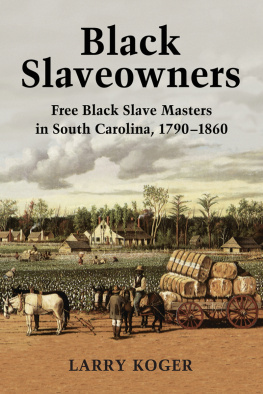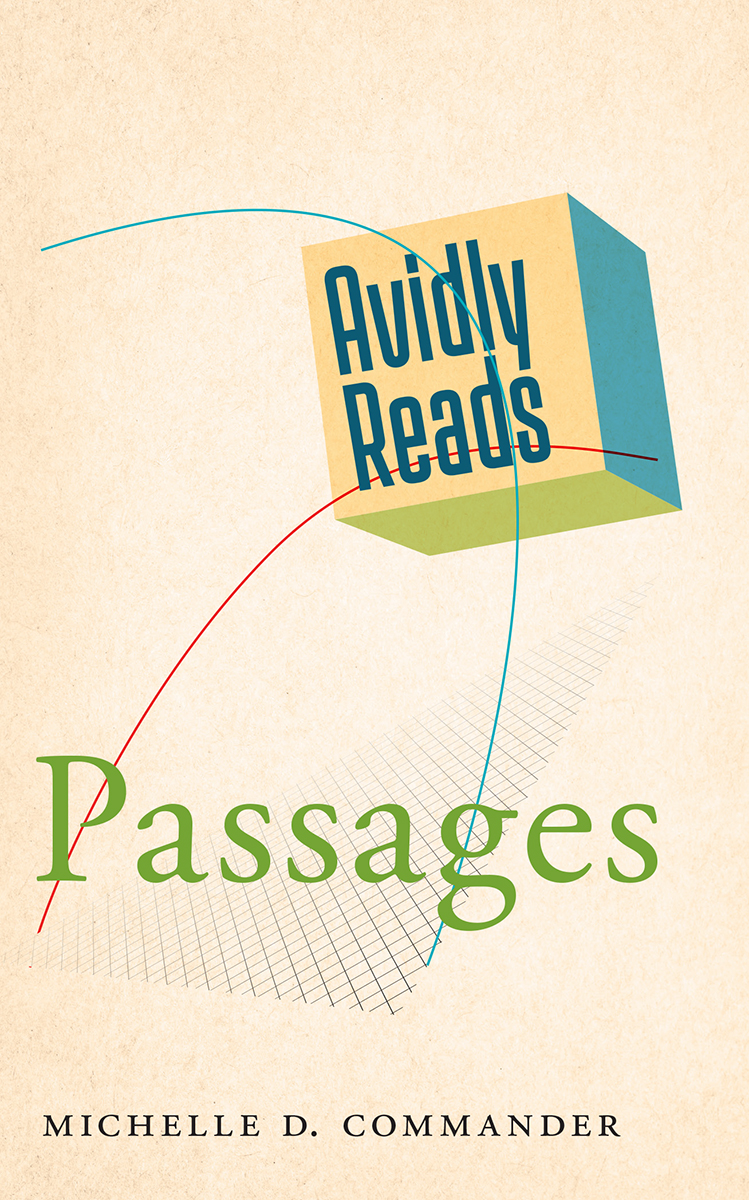Michelle D. Commander - Avidly Reads Passages
Here you can read online Michelle D. Commander - Avidly Reads Passages full text of the book (entire story) in english for free. Download pdf and epub, get meaning, cover and reviews about this ebook. year: 2021, publisher: NYU Press, genre: Home and family. Description of the work, (preface) as well as reviews are available. Best literature library LitArk.com created for fans of good reading and offers a wide selection of genres:
Romance novel
Science fiction
Adventure
Detective
Science
History
Home and family
Prose
Art
Politics
Computer
Non-fiction
Religion
Business
Children
Humor
Choose a favorite category and find really read worthwhile books. Enjoy immersion in the world of imagination, feel the emotions of the characters or learn something new for yourself, make an fascinating discovery.

- Book:Avidly Reads Passages
- Author:
- Publisher:NYU Press
- Genre:
- Year:2021
- Rating:4 / 5
- Favourites:Add to favourites
- Your mark:
Avidly Reads Passages: summary, description and annotation
We offer to read an annotation, description, summary or preface (depends on what the author of the book "Avidly Reads Passages" wrote himself). If you haven't found the necessary information about the book — write in the comments, we will try to find it.
What is the value of Black life in America?
In Avidly Reads Passages, Michelle D. Commander plies four freighted modes of travelthe slave ship, train, automobile, and busto map the mobility of her ancestors over the past five centuries. In the process, she refreshes the conventional American travel narrative by telling an urgent story about how history shapes what moves us, as well as what prevents so many Black Americans from moving or being moved. Anchored in her maternal kins long history on and alongside plantations in rural South Carolina, Commander explores her family members ability and inability to navigate safely through space, time, and emotion, detailing how Black lives were shaped by the actual vehicles that promised an escape from the confines of American racism, yet nearly always failed to deliver on those promises. Using personal and public archives, Avidly Reads Passages unfolds distinct histories of transatlantic slavery ships, the possibilities presented by rail lines in the Reconstruction South, the fateful legacies of school busing, and the ways that Black Americans attempted to negotiate their automobility, including through the use of road and travel compendiums such as Travelguide and The Negro Motorist Green Book.
In order to understand the intricacies of slavery and its aftermath, Commander began her exploration with the hope of engaging with the difficult evidences and stubborn gaps in her familys genealogy; what she produced is a biting and elegiac reflection on working-class life in the Black South. Commander demonstrates that the forms of intimidation, brutality, surveillance, and restriction used to control Black mobility have merely evolved since slavery, marking Black life writ large in America, with neither the passage of time nor the passage of laws assuring true and adequate racial progress. Despite this bleak observation, Commander catalogs and celebrates, through affecting stories about her beloved South Carolina community, the compelling strivings of Southern Black people to survive by holding on firmly to family, and their faith that new worlds could be imagined, created, and traveled to someday.
Part of the Avidly Reads series, this slim book gives us a new way of looking at American culture. With the singular blend of personal reflection and cultural criticism featured in the series, Avidly Reads Passages offers a unique lens through which to capture the intricacies of Black life.
Michelle D. Commander: author's other books
Who wrote Avidly Reads Passages? Find out the surname, the name of the author of the book and a list of all author's works by series.









